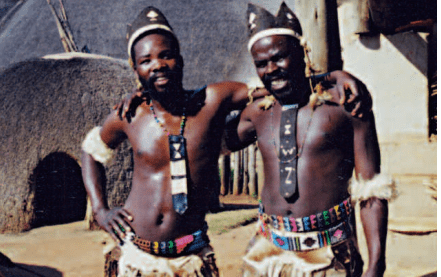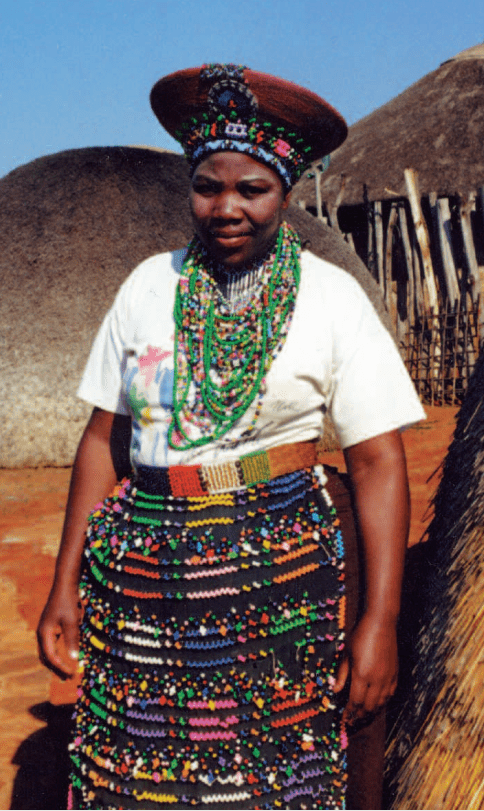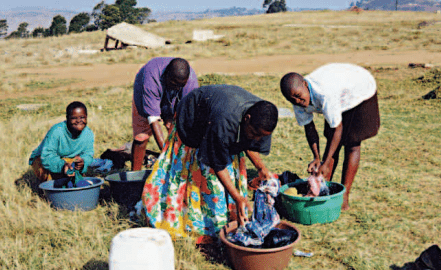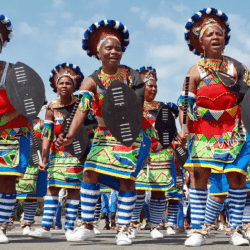People and History The Zulu people live in South Africa, primarily in KwaZulu-Natal (formerly known as Natal).
The history of the Zulus can be traced back to the 19th century warrior, Shaka Zulu.

After the death of his father, Senzangakhona, Shaka conquered many ethnic groups and consolidated them under his reign, creating a huge Zulu nation.
During the wars (known as Mfecane or Difaqane) that Shaka instigated, many people fled KwaZulu-Natal and moved north, spreading the Zulu language along the way. In 1828, Dingaan, Shaka’s brother, assassinated Shaka.

After Dingaan’s rule, his brother Cetshwayo became king. Cetshwayo led the Zulus to several military victories over the British.

However, the British eventually defeated the Zulus, and in 1887 the British annexed KwaZulu-Natal, later incorporating it into a colony.
Many of the cultures, customs and traditions of Shaka’s time remain the cornerstones of Zulu culture.

Today, the king of the Zulus is King Goodwill Zwelethini.
In 1948, the Afrikaner-dominated National Party succeeded in gaining control of Parliament and set about disenfranchising those people of color who still had the vote.

The policy of separateness (apartheid) was continually reinforced and embellished with the Job Reservation Act, the Mixed Marriages Act, The Group Areas Act, The Immorality Act, the Pass Laws and many more. The Black nations were split into homelands, with the Zulu nation being separated into KwaZulu (place of the Zulu), comprising thirteen fragmented areas.

In 1990, in the face of chronic internal resistance and international sanctions, the previous bans on black political parties were lifted, race laws were abolished and political prisoners were released.
In 1994, the first democratic elections were held, the homeland of KwaZulu was dissolved and the entire province of Natal was renamed KwaZulu-Natal.

